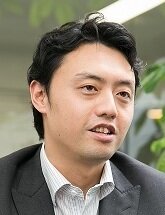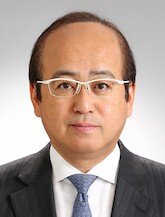MY VISION
Toward a Society in Which Establishing a Startup
Is a Readily Available Choice
Last November, the Kishida administration launched the “Startup Development Five-year Plan” as the main pillar of its growth strategy. Will this plan provide an opportunity to boost Japan’s economy?
EXPERT OPINIONS
- Toward a Society in Which Establishing a Startup Is a Readily Available Choice
How should we assess the current situation in Japan and the government's efforts?
What are the keys to increasing the number of startups and encouraging their growth?
-
01
An Ecosystem That Facilitates the Taking on of Entrepreneurial Challenges; Realizing M&A by Large Companies
 Yutaka Matsuo Professor, Graduate School of Engineering, The University of TokyoMomentum in the startup sector in Japan is growing as anticipated. Although the Japanese market is...
Yutaka Matsuo Professor, Graduate School of Engineering, The University of TokyoMomentum in the startup sector in Japan is growing as anticipated. Although the Japanese market is... -
02
Promote Mobility of the Labor Force and Create a Uniquely Japanese Ecosystem
 Shinichi Takamiya Managing Partner, Globis Capital PartnersJapan's startup ecosystem has developed rapidly, despite its short history. The history of Silicon Valley...
Shinichi Takamiya Managing Partner, Globis Capital PartnersJapan's startup ecosystem has developed rapidly, despite its short history. The history of Silicon Valley... -
03
Ensure Psychological Security and Create an Environment in Which Participation in Startups Is Simply Natural
 Shinji Odashima Deputy Senior General Manager, Startup Acceleration Division, Sony Group CorporationWhile an increasing number of people are rising to the challenge of establishing startups, the level of...
Shinji Odashima Deputy Senior General Manager, Startup Acceleration Division, Sony Group CorporationWhile an increasing number of people are rising to the challenge of establishing startups, the level of... -
04
Post-IPO Support and Expansion of VC Investment Through the Utilization of “Discerning Human Resources”
 Komei Fukushima CEO, K Pharma Inc.The Kishida administration is to be commended for having established clear policies to support startup...
Komei Fukushima CEO, K Pharma Inc.The Kishida administration is to be commended for having established clear policies to support startup... -
05
Agility in Responding to the Evolving Startup Ecosystem
 Florence Neo CEO of Action Community for Entrepreneurship (ACE)Startups are a driving force behind innovation and contribute significantly to a country’s...
Florence Neo CEO of Action Community for Entrepreneurship (ACE)Startups are a driving force behind innovation and contribute significantly to a country’s...
ABOUT THIS ISSUE
-
Startup Development in Japan: Issues to Be Faced Right Now
- Realizing a Country in Which Many More People Take Up the Challenge of Entrepreneurship, and a Healthy Startup Metabolism Takes Root
Startup Development in Japan: Issues to Be Faced Right Now
- Realizing a Country in Which Many More People Take Up the Challenge of Entrepreneurship, and a Healthy Startup Metabolism Takes RootYuri Okina Executive Vice President, NIRA / Chairperson, The Japan Research Institute, LimitedIn November 2022, the Kishida administration launched a five-year plan to foster startups in Japan. The plan seeks to create 100 unicorn companies and 100,000 startups. It also aims to increase investment in startups to 10 trillion yen by fiscal 2027, five years from now. This is ten times the current level. Japan has made efforts to nurture startups in the past, but have they been effective? How should we understand the current situation in Japan, and how should we evaluate the government's new initiative? What are the keys to increasing the number of startups and encouraging their growth? In this issue of My Vision, we sought opinions from experts working at the front lines of this area.



Expert Opinions
01
An Ecosystem That Facilitates the Taking on of Entrepreneurial Challenges; Realizing M&A by Large Companies
An Ecosystem That Facilitates the Taking on of Entrepreneurial Challenges; Realizing M&A by Large Companies
Yutaka Matsuo Professor, Graduate School of Engineering, The University of Tokyo
Momentum in the startup sector in Japan is growing as anticipated. Although the Japanese market is still smaller than Silicon Valley in the U.S., the startup ecosystem is experiencing exponential growth through continuous cycles. As successful examples emerge, knowledge and insights about starting a business will spread, inspiring more individuals to take on entrepreneurial challenges. With increased participation and engagement in the field, an investment mechanism will gradually develop, and best practices will be disseminated through the activities of venture capitalists. While progress may appear slow initially, there is no reason for pessimism. Through ongoing efforts, Japan's startup ecosystem will eventually mature significantly.
What Japan needs today is an entrepreneurial attitude that prioritizes taking the first step in starting a business. If a venture shows promising results, it should be accelerated, but if it faces difficulties, it should be abandoned promptly. This approach fosters a free yet adaptive response to challenges. It would be counterproductive to enumerate potential obstacles at the project's inception, as this would only create reasons not to try. While perfection may not be achievable from the outset, what matters most for a startup is the entrepreneurial mindset that enables the founder to think critically and overcome obstacles proactively. Rigid adherence to annual budget plans and one-sided government support would not be beneficial to fostering momentum in the startup ecosystem.
The government has been actively promoting the importance of startups, and it is crucial that this message of support continues. It is essential to create an environment where startups are perceived positively, fostering a natural attraction of talented individuals towards this field. Many student entrepreneurs, who are skilled in technology and have fewer obligations, already consider starting a business as a less risky option than working for a large company. It is important to establish mechanisms that can change the prevailing societal perception that starting a business is a risky venture, thereby encouraging more individuals to embrace entrepreneurship as a viable and rewarding career path.
To this end, it is essential for the government to strongly encourage large companies to engage in acquiring startups through M&A. Currently, there is a scarcity of M&A activities in comparison to initial public offerings (IPOs) as exit strategies for startups. M&A serve as a “small success” for startups. As the number of success stories increases and the probability of success for startups improves, it will become increasingly feasible for more individuals to undertake the challenge of establishing their own ventures. Acquiring startups that have achieved success becomes a sensible move for large companies, particularly those that face difficulties in taking on high-risk endeavors. This approach not only mitigates risks but also contributes to the promotion of innovation within the ecosystem.
Professor Matsuo is a leading researcher in artificial intelligence and is involved in a wide range of activities from basic research to social implementation and incubation. His laboratory has produced numerous entrepreneurs, and the companies they have founded have attracted attention specifically as “startups from Matsuo Lab.” After serving as a Visiting Scholar at Stanford University and an Associate Professor at The University of Tokyo's Graduate School of Engineering, Professor Matsuo established the Japan Deep Learning Association in 2017, becoming its Chairman. He is an expert member of the Council of New Form of Capitalism Realization. He has also served as a board member of the Japanese Society for Artificial Intelligence and the Information Processing Society of Japan. Professor Matsuo specializes in artificial intelligence and deep learning. He holds a B.S. from The University of Tokyo’s Department of Information and Communication Engineering and a Ph.D. in Engineering from the same university.
02
Promote Mobility of the Labor Force and Create a Uniquely Japanese Ecosystem
Promote Mobility of the Labor Force and Create a Uniquely Japanese Ecosystem
Shinichi Takamiya Managing Partner, Globis Capital Partners
Japan's startup ecosystem has developed rapidly, despite its short history. The history of Silicon Valley in the U.S. spans 60 years, while in Japan, the period is no more than a quarter of a century. Nevertheless, we have seen the emergence of many talented entrepreneurs, including serial entrepreneurs, people with previous experience in the successful nurturing of startups, people with management experience in large corporations, and people from professional firms. Additionally, venture capital has emerged to provide funding. These represent the two drivers of ecosystem development. Since the Abenomics period, the government has also played a significant role. In addition to providing direct investment, Abenomics boosted the performance of large companies and thus promoted their collaboration with startups and startup investment as a new source of growth. As a result, more than 30 “unicorns” (startups with market capitalization of over USD1 billion) have appeared in the four years since the first, Mercari, went public in 2018.
Given the size of its economy, Japan has the potential to accommodate more unicorns, and even “decacorns,” companies with market capitalization of over USD10 billion. The Kishida administration's “Five-Year Start-up Development Plan,” which follows the Abenomics approach, will provide an additional boost. The government's main role should be to set appropriate rules for new technologies, while relaxing unnecessary regulations and designing a legal framework that will attract foreign investment and M&A. Direct investment should focus on deep tech (see note), biotech, and national policy areas, which lag behind in attracting private-sector investment, while other areas should be left to market principles and the private sector. In addition, explicitly setting the right goals and metrics are key factors. Both the government and the private sector will be encouraged to invest in startups if their effect is measured not only by the number of unicorns and market capitalization, but also by their economic impact, job creation, and generation of overseas sales, etc.
The challenge of funding is being resolved. The next challenge is the mobility of the labor force. In the U.S., while total compensation is at a high level, in return labor law permits the laying off of workers. Thus, mobility of the labor force is realized, and talent is concentrated in promising, high-growth sectors. Japan needs to try to realize mobility, but in a way that suits Japan. For example, Japan needs to relax restrictions on layoffs, but only limited to high-level professional talent, global talent, or special zones, while maintaining overall job security as a society. Allowing talented personnel in large corporations to have side jobs and implementing reskilling programs would also be effective. Rather than merely imitating the Silicon Valley model, a unique ecosystem should be created to take advantage of Japan's unique attractions. Berlin, for example, has attracted startup talent by exploiting its status as a center of fashion and art, and has produced many culture and entertainment startups. Japan should also use food, safety, hospitality, historical culture, and subcultures such as manga and anime as leverage to attract talent from around the world.
(Note) An area in which technology is the core, involving basic research, technological development, etc. Enormous long-term investment is required until commercialization can be realized.
Globis Capital Partners was founded in 1996 as Japan's first hands-on venture capital firm providing not only capital but also management and operational support to early- to late-stage startups. Mr. Takamiya is responsible for Globis’ investments in the digital and healthcare sectors. His track record includes iStyle, Aucfan, Kayac, Pixta, Mercari, Lancers, Shimauma Print System, nanapi, and Coubic. Forbes Japan's “Most Influential Venture Investors in Japan” ranking placed him 1st in 2018, 7th in 2015, and 10th in 2020. Mr. Takamiya joined Globis after working at Arthur D. Little, a strategy consulting firm. He holds a BA in Economics from The University of Tokyo and an MBA from Harvard Business School.
03
Ensure Psychological Security and Create an Environment in Which Participation in Startups Is Simply Natural
Ensure Psychological Security and Create an Environment in Which Participation in Startups Is Simply Natural
Shinji Odashima Deputy Senior General Manager, Startup Acceleration Division, Sony Group Corporation
While an increasing number of people are rising to the challenge of establishing startups, the level of difficulty involved in starting a business remains high. It is still a world in which only a handful of “ultra-talented” and “ultra-courageous” people like Hideo Nomo, who was a pioneer in taking up the challenge of entering major league baseball in the United States, make the leap. In Nomo's time, there was no position to return to in Japan after making the move to the US. Today, many Japanese players try out for the major league, and if they are unsuccessful, they can go back to Japan and keep trying. [In the same way,] We must make the challenge of establishing a startup no longer a high-risk, “special” path to take, but rather an option that anyone can take for granted. Only the government can make this happen. We are now at the stage at which a startup’s success is no longer simply a matter of force of will; we need to respond systematically.
Startup CEOs spend one-third of their time seeking funding. In order for entrepreneurs to be able to devote themselves fully to their primary task of creating new value, they must be provided with more means of funding. The government should make grants more accessible and institutionalize a system whereby large corporations contribute a certain percentage of their retained earnings or profits to invest in and nurture startups. With such a system in place,it would be possible to resolve the issue of accountability to shareholders, which has been a bottleneck for active investment.
It will also be important to take measures to increase certainty when undertaking the challenge of establishing a startup by increasing the number of opportunities to gain experience in entrepreneurship and business in advance, rather than expecting people to suddenly start a business and take on the associated risks. To this end, the government should deepen public-private partnerships and provide funding for the acceleration programs themselves. Furthermore, to increase the probability of business success, it will also be effective to implement policies that facilitate collaboration between large companies and startups and expand the diversity of exit strategies. In addition, another role that the government can be expected to play will be the promotion of greater awareness of startups throughout society. Just as mandatory education in the area of programming has broadened the base of engineers, it would be effective to regularly provide education that communicates the appeal of startups to children and increases their awareness in this area.
Based on the discussion above, the role of the government can be said to be to ensure the “psychological security” of the people involved in establishing a startup. In a manner of speaking, it is to make the idea of establishing a startup similar to working in a company, rather than its being seen as a “get-rich-quick scheme.” In Denmark, where I was assigned by Sony, if the individuals or groups who established startups found it impossible to continue the business, they would quit it in order to take on another challenge. This is made possible by generous unemployment benefits. It is to be hoped that the Japanese government will create mechanisms able to make entrepreneurship a challenge that anyone can take up.
Mr. Odashima oversees the Sony Startup Acceleration Program (SSAP) at Sony Group Corporation, a program that supports the creation and operation of new businesses within and outside the company. After joining Sony Corporation (now Sony Group Corporation), Mr. Odashima was posted to Scandinavia, where he launched a 30 billion yen business from scratch in three years. After returning to Japan, he worked in the Business Strategy Department of Sony’s Head Office. In 2014, he conceived the idea for SSAP and created 23 new businesses from the ground up in Japan and abroad. He is also involved in the business management of Enigmo Inc. as an External Executive Officer and SapplyM Inc. as a Director. In 2016, Mr. Odashima received the Intrapreneur Award at the 2nd Nippon Venture Awards sponsored by the Ministry of Economy, Trade and Industry. He is a graduate of The University of Tokyo’s Faculty of Engineering.
04
Post-IPO Support and Expansion of VC Investment Through the Utilization of “Discerning Human Resources”
Post-IPO Support and Expansion of VC Investment Through the Utilization of “Discerning Human Resources”
Komei Fukushima CEO, K Pharma Inc.
The Kishida administration is to be commended for having established clear policies to support startup development.
Nevertheless, there are two main issues that need to be addressed. First, the government's plan is for a five-year period, but the future scope of the policy vision for startup development should be more than ten years. An initial public offering (IPO) is a goal for investors, but not for the entrepreneurs themselves. No unicorns will be created if there is no further growth after a company goes public. The fact that few venture capitalists (VCs) are willing to invest in growth in the later stages of the startup establishment process when a company reaches the stage of making an IPO, and that support disappears as soon as the company makes the IPO, represents a problem. I believe that having a medium- to long-term outlook with regard to the fostering of start-ups while considering measures to support growth strategies following an IPO will be the foundation for creating unicorns.
Second, VC firms need to make greater use of “discerning human resources” who are able to correctly evaluate growth potential and support projects on that basis. The government plans to increase investment in startups to 10 trillion yen by FY 2027. While this is in itself a welcome development, it is a development without substance if there is a lack of discerning human resources. This is especially true in fields such as biotechnology, which requires specialized knowledge and in which it takes time to produce results. Although there are some drug development ventures that provide their own drug development platforms and monetize their business at an early stage, they are very rare. Precisely because a company is a startup, it has the potential to develop drugs that even large pharmaceutical companies cannot, and could thus grow into a global big-tech company. The use of discerning human resources should be encouraged, and support should be provided to companies with the potential to receive policy-based funding and to realize commercialization.
Last year (2022), the government publicly solicited applications for the “Drug Discovery Venture Ecosystem Enhancement Project,” but only two venture companies were selected. This is too few, despite the fact that eligibility for application was limited to companies deemed worthy of investment by eight approved venture capital firms. Problems also remain in relation to the mechanism that sees funding suspended when a company makes an IPO. Even if a system were to be created to improve this situation, its purpose would be defeated if judgments were too strict and funding was not ultimately provided.
The problem is that there is little interest in Japan in startups in the first place. The entrepreneurial mindset among businesspeople remains underdeveloped, and few people are willing to actively participate in the establishment of a startup. At universities also, there are still few faculty members and researchers who have a sense of the need to return knowledge to society. It will be important to promote entrepreneurship education among young people, specifically junior high school and high school students, to convey successful examples of entrepreneurship and its appeal, and to improve the entrepreneurial mindset in Japan as a whole.
Dr. Fukushima is CEO of K Pharma Inc., a medical venture company that originated from Keio University. K Pharma Inc. is engaged in the areas of drug discovery and regenerative medicine using iPS cells. The company seeks to realize the practical application of university research outcomes, allowing it to make a contribution to society in the field of medicine. Dr. Fukushima joined Eisai Co., Ltd. in 1988, and has been involved in research and development for more than 20 years. During this time, he also spent four years attached to the Eisai Boston Research Institute. Following this, he worked as a part-time lecturer and Specially-appointed Associate Professor at the Keio University School of Medicine, before founding K Pharma in 2016 with the School of Medicine’s Professor Hideyuki Okano and Professor Masaya Nakamura, at which time he took up his current position. Dr. Fukushima holds a Ph.D. from Hiroshima University and an MBA from Keio University.
05
Agility in Responding to the Evolving Startup Ecosystem
Agility in Responding to the Evolving Startup Ecosystem
Florence Neo CEO of Action Community for Entrepreneurship (ACE)
Startups are a driving force behind innovation and contribute significantly to a country’s economic growth. The Singaporean government recognized this early on, establishing a US$1 billion fund in 1999 to attract prominent venture capital fund managers to the country. This was followed up with the launch of the Action Community for Entrepreneurship (ACE) in 2003 as a key initiative by Enterprise Singapore, a statutory agency of the Ministry of Trade and Industry.
As the trade association for Singaporean startups, ACE serves as an evangelist for entrepreneurship, advocating for startups' interests and acting as the bridge between startups and the government. ACE offers various programs and services in support, including mentorship, innovation, internationalization, market insights, and networking opportunities, as well as comprehensive support for overseas expansion to help startups expand beyond Singapore. ACE also regularly hosts events such as roundtables, hackathons, demo days, and BACECamp to facilitate robust collaboration throughout the startup ecosystem. Recognizing the critical role that the startup ecosystem plays in addressing economic challenges, ACE constantly strives to build an entrepreneurial mindset “upstream,” this is, within institutes of higher learning, among highly skilled workers such as professionals, managers, executives, and technicians (PMETs), and among adult learners.
Although ACE was originally established as a subordinate organization under the Ministry of Trade and Industry, in 2014 it was restructured into a private sector-led, non-profit organization. This shift has given ACE two primary advantages. First, it has granted ACE more influence on policy decisions as a representative of startups. With the backing of a government minister and an entrepreneur from the private sector serving as its Chairman, ACE is in a favorable position to influence policy decisions that can impact the entire startup ecosystem. Second, the restructuring has given ACE the strategic and organizational flexibility to better represent and champion startups and entrepreneurs while working closely with the Singaporean government. With its agility and adaptability to the fast-moving needs of the evolving startup scene, ACE is able to help startups weather crises and continue thriving in uncertain times.
Looking to the future, startups must think global to succeed. To support Singaporean startups in their internationalization efforts, ACE has partnered with 17 cities worldwide. In 2017, ACE signed a Memorandum of Understanding with the Fukuoka City Government, enabling it to assist Singaporean startups in exploring the Japanese market and facilitating collaboration and synergy between ACE and the Fukuoka City Government. This collaboration also provides a gateway for Japanese startups to expand into Singapore, Southeast Asia, and beyond. Most recently, ACE hosted a pitch session for Fukuoka startups and corporations to connect with their Singaporean counterparts, exemplifying its commitment to facilitating collaboration as an ecosystem enabler.
Florence Neo is the CEO of ACE, a startup support organization in Singapore. ACE focuses on five pillars including startups, corporations, Institutes of Higher Learning, risk capital, and the public sector. It aims to promote entrepreneurship, create new growth opportunities, and cultivate startups while collaborating with the government. Florence has been a successful entrepreneur in the diamond jewelry industry for many years and has been involved in business management, organizational development, marketing, and community building in various industries such as higher education and business events (MICE). She advocates for the establishment of business communities and an entrepreneurial mindset. She has been in her current position since 2022 and holds an Executive MBA from the National University of Singapore.
About this issue
Startup Development in Japan: Issues to Be Faced Right Now
- Realizing a Country in Which Many More People Take Up the Challenge of Entrepreneurship, and a Healthy Startup Metabolism Takes Root
Startup Development in Japan: Issues to Be Faced Right Now
- Realizing a Country in Which Many More People Take Up the Challenge of Entrepreneurship, and a Healthy Startup Metabolism Takes Root
Yuri Okina Executive Vice President, NIRA / Chairperson, The Japan Research Institute, Limited
The potential growth rate of the Japanese economy has been declining over a long period of time, so much so that this period is referred to as the “lost 30 years.” However, from a global perspective, major transformations are taking place in a variety of fields such as digital technology, green technology, and healthcare. These innovations are led not only by large corporations, but also by startup companies. Thirty years ago, Tesla, Amazon, and Google were not among the top 10 U.S. companies by market capitalization, the position that they hold today. Fertile ground for the development of previously unimagined business models by entrepreneurs seeking to solve social issues and the successive nurturing of these models can be seen not only in the United States, but also in Scandinavia, Israel, and Asian countries such as Singapore. Taking these global trends and the magnitude of the social issues that need to be solved into consideration, it will be important for Japan that more people take on the challenge of starting their own businesses, that startups are fostered, and that healthy competition is promoted. This should lead to a flurry of innovations, which, in turn, should increase productivity and stimulate the economy, while creating a startup metabolism.
In November 2022, a “Startup Development Five-year Plan” was also formulated as part of the Japanese government’s growth strategy. Under this plan, the amount of investment in startups, which currently stands at 800 billion yen, is to be increased to more than 10 times that amount in five years, by 2027. The three pillars of the plan are (1) fostering of human resources and creation of networks, (2) diversification of funding sources and exit strategies for business growth, and (3) promotion of open innovation; a variety of specific measures have been incorporated into these three categories, and these are to be promoted as an integrated whole. Of course, measures to nurture startups have been implemented many times in the past. However, the current five-year plan is positioned as the main axis of the government’s growth strategy. It also includes comprehensive measures to increase the scale of startups through fully-fledged global expansion. Currently, various measures are in the process of being implemented in accordance with the plan's roadmap, but there are also issues that require deeper consideration. Given this, in this issue of My Vision, we asked experts who are active on the frontlines of the startup field to share their perspectives on the current situation in Japan and the further measures that will be needed in order to foster the establishment of startups.
The Challenge Remains the Flow of Human Resources
First, with regard to the current status of startups in Japan, while numerous problems remain, many are of the opinion that momentum is growing as expected in this area. Professor Yutaka Matsuo of The University of Tokyo, a leading AI researcher many of whose students are taking up the challenge of establishing startups, points out that the government has been actively promoting the importance of startups, and it is crucial that this message of support continues. Shinichi Takamiya, a Managing Partner at Globis Capital Partners, a venture capital firm, also indicates that while the number of start-ups has clearly increased, the scale of the Japanese economy should allow for the creation of larger companies.
Although the environment surrounding startups is gradually changing, there are many issues that have yet to be resolved. The first of these is the issue of human resources. Professor Matsuo emphasizes the importance of fostering an environment in which startups are perceived positively, and that results in talented individuals being naturally attracted towards this area. Mr. Takamiya also points out the need for uniquely Japanese measures to increase the mobility of the labor force. Shinji Odashima, who leads a startup acceleration program for Sony Group Corporation, also tells us that an important role for the government will be to ensure the psychological security of people challenging themselves by establishing venture companies, and to make entrepreneurship something that is regarded as a “normal challenge,” rather than something exceptional. He also suggests the importance of considering a safety net system with a high tolerance for failure, as is in place in Scandinavia. The significance of starting education in this area from childhood was also emphasized by a number of our interviewees. It will be essential in the future to communicate the appeal of startups and to provide access to entrepreneurial education starting in middle and high school. Furthermore, it will be necessary to boost the quality and quantity not only of entrepreneurs, but also of the human resources of venture capital firms. Dr. Komei Fukushima, CEO of K Pharma Inc., a university-launched venture company in the field of regenerative medicine, points out that improving the discernment of the providers of venture capital is an important issue.
Global Collaborative Support and Agile Responses Will Be Required to Build an Ecosystem
Next, financial challenges still remain. Dr. Fukushima emphasizes the fact that there are few venture capital firms in Japan that continue to provide support after an initial public offering (IPO). While the Tokyo Stock Exchange Growth Market (see note below) allows companies with low market capitalization to list, the majority of funds following listing are provided by individual investors. Some overseas investors view startups without core investors as unattractive, and it will be necessary to improve this situation from a variety of angles. In addition to policies aimed at increasing investment from large companies, it will also be important to facilitate collaboration between startups and large companies and to expand options such as M&A with large companies to provide an “exit” for startups. As Professor Matsuo and Mr. Odashima emphasize, this initiative would not only lead to innovation by large companies, but would also increase the probability of success for startups, inspiring many more people to take up the challenge of establishing them.
Third, how to make the startup ecosystem function effectively is also an issue for the future. Florence Neo, CEO of ACE, a Singaporean private-sector organization that provides strong support for the formation of a startup ecosystem under the auspices of the Singaporean government, points out that what is important in an ecosystem is to support global collaboration and to be nimble in responding to the rapidly changing needs of startups in a changing environment. Japan should be more proactive in accelerating such efforts.
(Note) A market centered on emerging companies with high growth potential.
Interview period:January - March, 2023
Interviewer : Sosuke Suzuki (Research Coordinator and Research Fellow, NIRA), Kozue Sekijima (Research Coordinator and Research Fellow, NIRA)
Editor: Reiko Kanda, Maiko Sakaki and Tatsuya Yamaji.
This is a translation of a paper originally published in Japanese. NIRA bears full responsibility for the translation presented here.